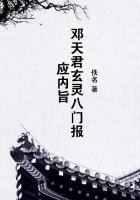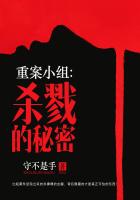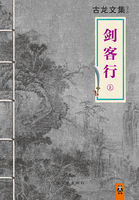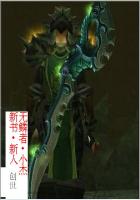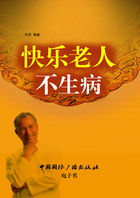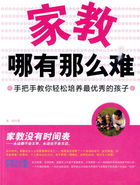MR. HARRY DESBOROUGH lodged in the fine and grave old quarter of Bloomsbury, roared about on every side by the high tides of London, but itself rejoicing in romantic silences and city peace. It was in Queen Square that he had pitched his tent, next door to the Children's Hospital, on your left hand as you go north: Queen Square, sacred to humane and liberal arts, whence homes were made beautiful, where the poor were taught, where the sparrows were plentiful and loud, and where groups of patient little ones would hover all day long before the hospital, if by chance they might kiss their hand or speak a word to their sick brother at the window.
Desborough's room was on the first floor and fronted to the square; but he enjoyed besides, a right by which he often profited, to sit and smoke upon a terrace at the back, which looked down upon a fine forest of back gardens, and was in turn commanded by the windows of an empty room.
On the afternoon of a warm day, Desborough sauntered forth upon this terrace, somewhat out of hope and heart, for he had been now some weeks on the vain quest of situations, and prepared for melancholy and tobacco. Here, at least, he told himself that he would be alone; for, like most youths, who are neither rich, nor witty, nor successful, he rather shunned than courted the society of other men. Even as he expressed the thought, his eye alighted on the window of the room that looked upon the terrace; and to his surprise and annoyance, he beheld it curtained with a silken hanging. It was like his luck, he thought; his privacy was gone, he could no longer brood and sigh unwatched, he could no longer suffer his discouragement to find a vent in words or soothe himself with sentimental whistling; and in the irritation of the moment, he struck his pipe upon the rail with unnecessary force. It was an old, sweet, seasoned briar-root, glossy and dark with long employment, and justly dear to his fancy.
What, then, was his chagrin, when the head snapped from the stem, leaped airily in space, and fell and disappeared among the lilacs of the garden?
He threw himself savagely into the garden chair, pulled out the story-paper which he had brought with him to read, tore off a fragment of the last sheet, which contains only the answers to correspondents, and set himself to roll a cigarette. He was no master of the art; again and again, the paper broke between his fingers and the tobacco showered upon the ground; and he was already on the point of angry resignation, when the window swung slowly inward, the silken curtain was thrust aside, and a lady, somewhat strangely attired, stepped forth upon the terrace.
'Senorito,' said she, and there was a rich thrill in her voice, like an organ note, 'Senorito, you are in difficulties. Suffer me to come to your assistance.'
With the words, she took the paper and tobacco from his unresisting hands; and with a facility that, in Desborough's eyes, seemed magical, rolled and presented him a cigarette.
He took it, still seated, still without a word; staring with all his eyes upon that apparition. Her face was warm and rich in colour; in shape, it was that piquant triangle, so innocently sly, so saucily attractive, so rare in our more northern climates; her eyes were large, starry, and visited by changing lights; her hair was partly covered by a lace mantilla, through which her arms, bare to the shoulder, gleamed white; her figure, full and soft in all the womanly contours, was yet alive and active, light with excess of life, and slender by grace of some divine proportion.
'You do not like my cigarrito, Senor?' she asked. 'Yet it is better made than yours.' At that she laughed, and her laughter trilled in his ear like music; but the next moment her face fell. 'I see,' she cried. 'It is my manner that repels you. I am too constrained, too cold. I am not,' she added, with a more engaging air, 'I am not the simple English maiden I appear.'
'Oh!' murmured Harry, filled with inexpressible thoughts.
'In my own dear land,' she pursued, 'things are differently ordered. There, I must own, a girl is bound by many and rigorous restrictions; little is permitted her; she learns to be distant, she learns to appear forbidding. But here, in free England - oh, glorious liberty!' she cried, and threw up her arms with a gesture of inimitable grace - 'here there are no fetters; here the woman may dare to be herself entirely, and the men, the chivalrous men - is it not written on the very shield of your nation, HONI SOIT? Ah, it is hard for me to learn, hard for me to dare to be myself. You must not judge me yet awhile; I shall end by conquering this stiffness, I shall end by growing English. Do I speak the language well?'
'Perfectly - oh, perfectly!' said Harry, with a fervency of conviction worthy of a graver subject.
'Ah, then,' she said, 'I shall soon learn; English blood ran in my father's veins; and I have had the advantage of some training in your expressive tongue. If I speak already without accent, with my thorough English appearance, there is nothing left to change except my manners.'
'Oh no,' said Desborough. 'Oh pray not! I - madam - '
'I am,' interrupted the lady, 'the Senorita Teresa Valdevia.
The evening air grows chill. Adios, Senorito.' And before Harry could stammer out a word, she had disappeared into her room.
He stood transfixed, the cigarette still unlighted in his hand. His thoughts had soared above tobacco, and still recalled and beautified the image of his new acquaintance.


